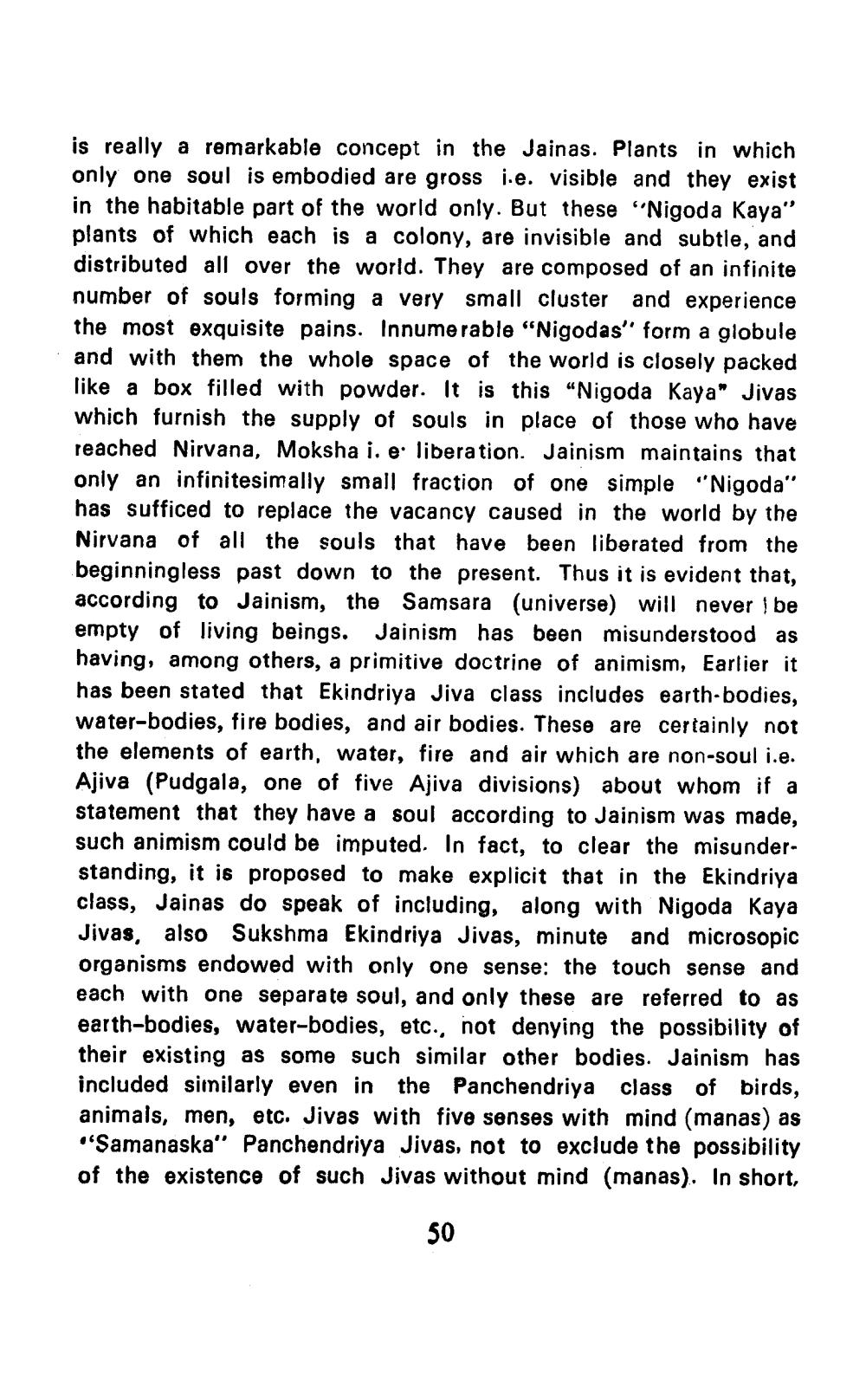________________
is really a remarkable concept in the Jainas. Plants in which only one soul is embodied are gross i.e. visible and they exist in the habitable part of the world only. But these "Nigoda Kaya" plants of which each is a colony, are invisible and subtle, and distributed all over the world. They are composed of an infinite number of souls forming a very small cluster and experience the most exquisite pains. Innumerable "Nigodas" form a globule and with them the whole space of the world is closely packed like a box filled with powder. It is this "Nigoda Kaya" Jivas which furnish the supply of souls in place of those who have reached Nirvana, Moksha i. e liberation. Jainism maintains that only an infinitesimally small fraction of one simple "Nigoda" has sufficed to replace the vacancy caused in the world by the Nirvana of all the souls that have been liberated from the beginningless past down to the present. Thus it is evident that, according to Jainism, the Samsara (universe) will never be empty of living beings. Jainism has been misunderstood as having, among others, a primitive doctrine of animism, Earlier it has been stated that Ekindriya Jiva class includes earth-bodies, water-bodies, fire bodies, and air bodies. These are certainly not the elements of earth, water, fire and air which are non-soul i.e. Ajiva (Pudgala, one of five Ajiva divisions) about whom if a statement that they have a soul according to Jainism was made, such animism could be imputed. In fact, to clear the misunderstanding, it is proposed to make explicit that in the Ekindriya class, Jainas do speak of including, along with Nigoda Kaya Jivas, also Sukshma Ekindriya Jivas, minute and microsopic organisms endowed with only one sense: the touch sense and each with one separate soul, and only these are referred to as earth-bodies, water-bodies, etc., not denying the possibility of their existing as some such similar other bodies. Jainism has included similarly even in the Panchendriya class of birds, animals, men, etc. Jivas with five senses with mind (manas) as "Samanaska" Panchendriya Jivas, not to exclude the possibility of the existence of such Jivas without mind (manas). In short,
50




